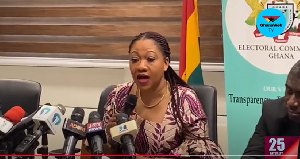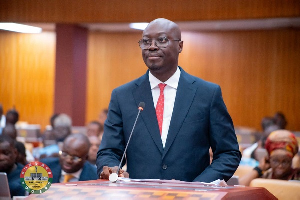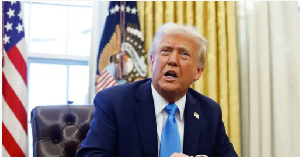The Electoral Commission of Ghana (EC) has reacted to the brouhaha over its memo to representatives of presidential candidates for the pending 2024 general elections, indicating shortfalls in the ballot papers for the presidential race in some constituencies in the Volta Region.
At an IPAC meeting on Friday, November 29, 2024, the commission debunked assertions that the shortfall of ballot papers in the Volta Region shows that something negative is happening.
The EC indicated that the shortage of the ballot papers had been recorded in other regions as well, including Greater Accra, Western North, Upper West, Western, and Bono East Regions, and in all these instances, the political parties were informed in writing just as in the case of the Volta Region and the reprinting was done to cover the shortfalls in those five regions.
The commission reiterated that it has nothing to hide as is being asserted by a faction of the public and its memo to the political parties on the shortfalls, forms part of its transparency and accountability mechanisms.
It indicated that if it had something to hide, it would not have informed the parties about the shortfalls which were discovered by its officials in the districts and regions.
About the Volta Region memo:
The memo the EC issued to representatives of the 12 presidential candidates contesting in the pending December 7, 2024, general elections, had details of the five constituencies in the Volta Region which had the shortfalls.
The affected constituencies listed in the letter are the Keta, Ketu North, Ho Central, Hohoe, and Ho West constituencies.
“I bring you warm greetings from the Electoral Commission and trust that this letter finds you well.
“The Electoral Commission has identified some shortfalls in presidential and parliamentary ballot papers for the Keta, Ketu North, Ho Central, Hohoe, and Ho West constituencies in the Volta Region,” part of the letter reads.
The commission further indicated that it was going to print the shortfalls in the polls, and will invite representatives of the presidential candidates for the exercise.
“The shortfalls will be printed by Acts Commercials. Political parties and independent presidential candidates are to provide two (2) representatives each to observe the printing process on Friday, November 29, 2024, at 10:00 am at the premises of Acts Commercials Printing House, Accra,” it added.
Here are the highlights from the IPAC Meeting on the shorfalls:
• The attention of the Electoral Commission has been drawn to a memo written to political parties and some printing houses informing them about shortfalls and some discrepancies in some ballot papers sent to the Volta and Bono Regions. The memo is circulating on social media with different narratives.
• This is part of the Commission’s accountability mechanisms. The Commission directed its staff at the regions and districts, together with the political parties, to review and verify all ballot papers received to ensure their accuracy and to guarantee that they tally with the ballot statistics provided to the printers and the political parties.
• This is a standard procedure of the Commission. It is important to note that this additional verification unearths any issues with the ballots and enables corrections to be made ahead of the elections.
• This is to ensure that all ballot papers are accurate and intact on Election Day.
• This is a further layer of accountability that the Commission employs in the printing and distribution of ballot papers.
• The essence is to ensure full accountability of the ballots and to make sure that the ballots sent to the regions are accurate.
• It is important to note that in the spirit of transparency and accountability, the Commission notified the political parties and presidential candidates to enable them to inform their agents to observe the reprinting of the ballots as well as the destruction of the faulty ballot papers.
• The key question is, who discovered the shortfalls and who requested the reprint? Why would the Commission inform the political parties in writing if it has something to hide?
• It is the Commission’s staff at the regional level that discovered the shortfalls and reported back to the Commission. It is the Commission that ordered the reprint and informed the political parties and the presidential candidates.
• The Commission has nothing to hide. This is the procedure in place, and it is the Commission that discovered the shortfalls and requested the reprint.
• Similar shortfalls were discovered and reported back to the Commission by our regional directors. The shortfalls occurred in Greater Accra, Western North, Upper West, Western, and Bono East Regions. As in the case of the Volta Region, the political parties were informed in writing and the reprint was done to cover the shortfalls in those five regions.
Watch the video below:
BAI/AE
Watch the latest episode of Everyday People on GhanaWeb TV below:
You can watch today’s compilation of the Twi news below:













